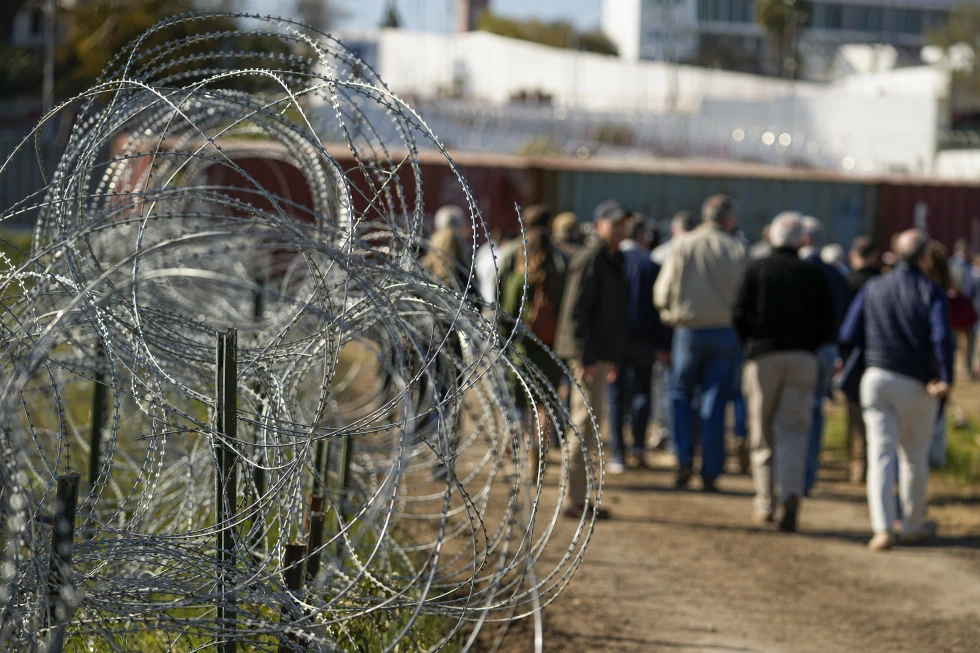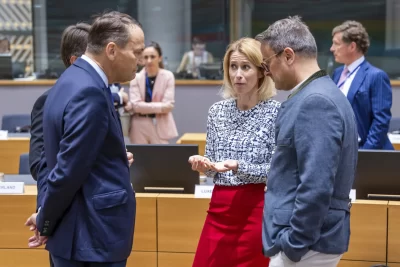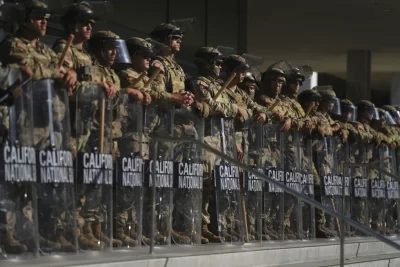
WASHINGTON — A politically treacherous dynamic is taking hold as negotiators in Congress work to strike a bipartisan deal on the border and immigration, with vocal opposition from the hard right and former President Donald Trump threatening to topple the carefully negotiated compromise.
Senators are closing in on the details of an agreement on border measures that could unlock Republican support for Ukraine aid and hope to unveil it as soon as next week. But the deal is already wobbling, as House Speaker Mike Johnson faces intense pressure from Trump and his House allies to demand more sweeping concessions from Democrats and the White House.
“I do not think we should do a Border Deal, at all, unless we get EVERYTHING needed to shut down the INVASION of Millions & Millions of people,” Trump posted on social media this week.
Even though the terms of the policy negotiations have shifted significantly in the Republicans’ direction, skepticism is running high among conservatives, creating a precarious moment that could determine not only the contours of U.S. immigration and border law for years to come, but the future of Ukraine as it faces dwindling U.S. supplies in its fight against Russia.
The president has reason to want an agreement. The historic number of migrants who have come to the U.S. border with Mexico during Biden’s term is seen as one of the largest political vulnerabilities in his re-election campaign.
During Iowa’s Republican caucuses last week, which Trump won, immigration was a top issue. An AP VoteCast survey found about 9 in 10 caucusgoers backed building a wall along the U.S.-Mexico border, with about 7 in 10 expressing strong support for the idea.
“It’s gotten to the point where, in a way, everybody’s back is against the wall,” said Sen. Michael Bennet, a Colorado Democrat. “I’m not talking about politically, I mean, substantively, these are challenges that the country can’t ignore.”
Bennet was joined at the Capitol on Thursday by Denver Mayor Mike Johnston, a Democrat who told reporters that the recent influx of migrants has caused “a humanitarian crisis and a fiscal crisis unlike anything we’ve seen in the last 25 years.”
Democrats in Congress are split on the merits of the Senate package. Progressive and Hispanic lawmakers decry changes that would toughen the process for claiming asylum in the United States. Still, many Democrats say that Johnson’s resistance to bipartisan compromise shows that Republicans aren’t serious about solving the problems at the border.
“They basically want to make sure that the situation is as chaotic as possible so that they can win elections in November,” said Rep. Joaquin Castro, a Texas Democrat. “That is their strategy. It’s not a sincere attempt to do something about what’s going on at the border.”
The proposal crafted by the Senate would toughen the asylum process with a goal of cutting the number of migrants who come to the southern border to make an asylum claim.
Negotiators have worked on some policies intended to aid immigrants. The plan could include a pathway to citizenship for Afghans who came during the U.S. withdrawal from their country, along with work permits for migrants who enter the asylum system, according to two people familiar with the talks who were granted anonymity to discuss the private negotiations.
But the package will mostly leave out broad immigration changes, like protections for immigrants who entered the U.S. illegally as children, that have been foundational in previous Senate bills.
“It will be by far the most conservative border security bill in four decades,” said Oklahoma Sen. James Lankford, the lead GOP negotiator.




